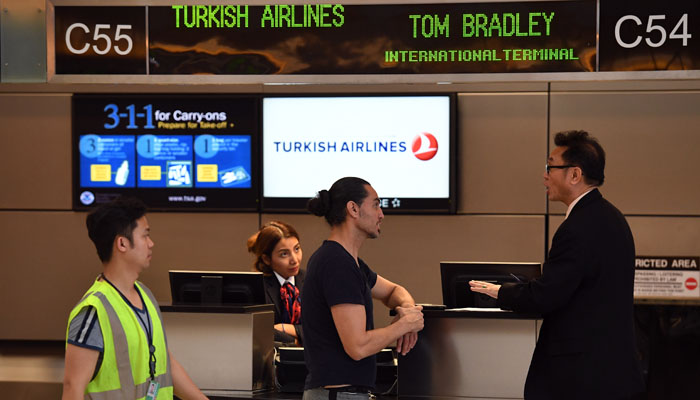Worries about a possible Islamic State in Iraq and the Levant (ISIL) attack by using explosives embedded in electronic devices led US and UK authorities to prohibit passengers from carrying large electronic gadgets in the cabin on inbound flights from some airports in the Middle East, including Turkey, US media reports say.
According to The New York Times, which cited unnamed sources, the ban was put in place to counter ISIL plans to develop a bomb small enough to fit inside a laptop battery.
ABC news also reported that intelligence obtained by the US earlier this year showed that ISIL was working on ways to smuggle explosives onto US-bound planes. A government source told ABC the threat information was “substantiated” and “credible.”
However, the US Transportation Safety Administration denied any specific threat and said in a statement on Tuesday that it instituted the ban due to “evaluated intelligence” that shows terrorist groups’ continued interest in targeting commercial flights.
The TSA said the airports affected by the ban were chosen “based on the current threat picture” and after consultation with intelligence officials. It also added that more airports could be added to the list in the future.
After US authorities announced late on Monday that electronic devices larger than a mobile phone will be prohibited in the passenger cabin on flights from 10 airports in eight Muslim-majority countries, the UK also imposed the same ban on direct flights to the UK from Turkey, Lebanon, Jordan, Egypt, Tunisia and Saudi Arabia.
The 10 airports affected by the US ban are Queen Alia International Airport in Jordan, Cairo International Airport in Egypt, Istanbul Ataturk Airport in Turkey, King Abdulaziz International Airport and King Khalid International Airport in Saudi Arabia, Kuwait International Airport in Kuwait, Mohammed V International Airport in Morocco, Hamad International Airport in in Qatar, and Dubai International Airport and Abu Dhabi International Airport in the United Arab Emirates and The affected airlines are Royal Jordanian, Egypt Air, Turkish Airlines, Saudi Arabian Airlines, Kuwait Airways, Royal Air Maroc, Qatar Airways, Emirates and Etihad Airways for direct flights to the US. However, the restrictions will not apply to aircraft crews.
The UK ban includes six UK carriers — British Airways, EasyJet, Jet2.com, Monarch, Thomas Cook and Thomson — and eight overseas carriers — Turkish Airlines, Pegasus Airways, Atlas-Global Airlines, Middle East Airlines, Egyptair, Royal Jordanian, Tunis Air and Saudi Arabian Airlines.

